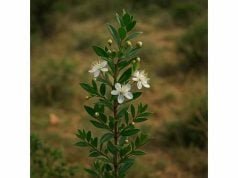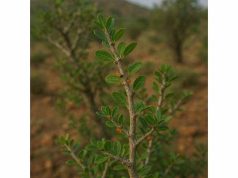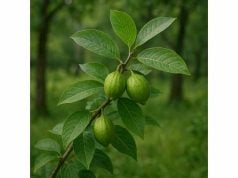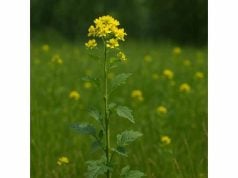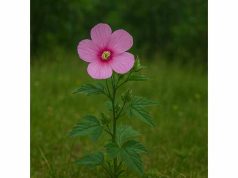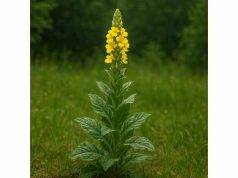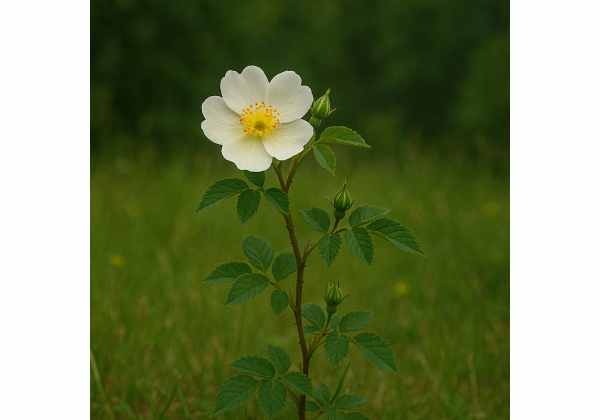
Musk Rose is a captivating herb renowned for its enchanting fragrance and potent healing properties. Traditionally prized for its anti-inflammatory, antioxidant, and skin-rejuvenating effects, this herb is rich in bioactive compounds such as flavonoids, polyphenols, and essential oils. Musk Rose is widely used in natural medicine and cosmetics to soothe skin irritations, promote a youthful complexion, and enhance overall well-being. Its versatile applications range from culinary infusions to luxurious topical formulations, making it a cherished component in both traditional and modern wellness practices. This comprehensive guide explores its botanical features, chemical profile, health benefits, practical uses, and the research supporting its efficacy.
Table of Contents
- Plant Profile and Identification
- Phytochemical Spectrum and Active Constituents
- Health Advantages and Core Attributes
- Practical Applications and Safety Guidelines
- Research Insights and Notable Study Outcomes
- Frequently Asked Questions
Plant Profile and Identification
Musk Rose, botanically known as Rosa moschata, belongs to the Rosaceae family and is celebrated for its unique musky aroma and delicate beauty. Often referred to as the “musk-scented rose,” this herb has been cherished for centuries for both its ornamental appeal and its therapeutic virtues. Unlike many modern hybrid roses, Musk Rose retains a wild, natural charm with its soft, pastel-colored petals and subtle fragrance that is both refreshing and grounding.
Botanical Characteristics and Morphology
Musk Rose is typically a deciduous shrub that reaches heights of 1–2 meters, although some specimens may grow taller under ideal conditions. The plant features:
- Leaves: The foliage of Musk Rose is composed of pinnately compound leaves, with each leaf divided into several small, oval leaflets. The leaves are usually a vibrant green, with a slightly glossy texture that enhances their visual appeal. Their delicate structure not only contributes to the plant’s aesthetic beauty but also plays a role in its photosynthetic efficiency.
- Flowers: The blossoms of Musk Rose are its most striking feature. The flowers are medium-sized, typically ranging from soft pink to pale salmon in color, with a subtle yet unmistakable musky scent that sets them apart from other rose species. Each flower consists of five to nine petals, arranged in a rosette pattern around a central cluster of stamens. The natural variation in petal count and color adds to the charm and diversity of the species.
- Fragrance: True to its name, Musk Rose exudes a gentle musky aroma. This fragrance is not overpowering but rather delicate and soothing, often described as a blend of sweet floral notes with an earthy, slightly spicy undertone. The scent is due to the complex mixture of volatile compounds produced by the plant, which also contribute to its medicinal properties.
- Fruit and Seed: After the flowering period, Musk Rose produces rose hips, which are small, berry-like fruits. These hips are rich in vitamin C and antioxidants and have been used traditionally to make teas, jams, and extracts. The seeds within the hips are dispersed naturally by birds and other animals, aiding in the plant’s propagation.
Growth Conditions and Natural Habitat
Musk Rose thrives in temperate climates and is well-adapted to a variety of soil types, although it prefers well-drained, slightly alkaline soils. It flourishes in full sunlight but can tolerate partial shade, making it a versatile plant for both wild landscapes and cultivated gardens. Native to regions of Southern and Western Europe, Rosa moschata has been naturalized in many parts of the world, including North America and Asia.
The natural habitat of Musk Rose includes open fields, scrublands, and forest margins where competition for nutrients is less intense. Its resilience and ability to flourish in disturbed soils have made it a common sight in rural areas and along country roads. The plant’s deep root system not only aids in drought resistance but also helps prevent soil erosion, making it an ecologically beneficial species.
Historical and Cultural Significance
Historically, Musk Rose has held a special place in traditional herbal medicine and perfumery. In medieval Europe, its petals were used in the preparation of delicate rose waters and perfumes that were popular in both courtly and religious contexts. The musky aroma was believed to have both aphrodisiac and therapeutic qualities, contributing to its enduring popularity.
In various cultures, the plant has been associated with love, beauty, and healing. Its use in aromatherapy and natural skincare has continued into modern times, with many contemporary herbalists and cosmetic formulators citing its anti-inflammatory and antioxidant properties. Traditional remedies often involved using rose hips for their high vitamin C content, supporting immune function and overall vitality.
Cultivation and Propagation
Cultivating Musk Rose requires minimal effort compared to some of its hybridized relatives. Gardeners appreciate its hardiness and low maintenance, as it can thrive with basic care in a variety of climates. Propagation is commonly achieved through seed sowing, but cuttings and layering are also effective methods for maintaining desirable traits in cultivated varieties.
Modern horticultural practices have focused on preserving the natural characteristics of Musk Rose, with an emphasis on organic cultivation methods. This ensures that the therapeutic qualities of the herb remain intact, making it a favorite among natural health enthusiasts and eco-conscious gardeners.
Ecological Importance
Beyond its ornamental and medicinal values, Musk Rose plays a significant role in supporting local ecosystems. Its flowers attract a variety of pollinators, including bees, butterflies, and hummingbirds, which are essential for maintaining biodiversity. The rose hips provide a nutritious food source for birds and small mammals, further underscoring the plant’s ecological contributions.
In summary, the rich botanical profile of Musk Rose—characterized by its distinctive leaves, delicate musky-scented flowers, and nutritious rose hips—demonstrates why this herb has been celebrated for centuries. Its adaptability, historical significance, and ecological benefits make it a valuable addition to both natural landscapes and herbal pharmacopoeias around the world.
Phytochemical Spectrum and Active Constituents
Musk Rose owes much of its therapeutic reputation to a complex blend of bioactive compounds. Modern phytochemical analyses have revealed a rich spectrum of chemicals that work in concert to produce its characteristic health benefits. Below is an in-depth exploration of the key active constituents found in Musk Rose.
- Flavonoids
Flavonoids are a diverse group of polyphenolic compounds that serve as powerful antioxidants. In Musk Rose, compounds such as quercetin, kaempferol, and myricetin are abundant. These molecules help neutralize free radicals, reduce oxidative stress, and mitigate inflammation. Their antioxidant properties play a critical role in protecting skin cells, improving vascular health, and reducing the risk of chronic diseases. Additionally, flavonoids contribute to the plant’s anti-aging effects by promoting collagen synthesis and enhancing skin elasticity. - Polyphenols
Polyphenols are another class of antioxidants prevalent in Musk Rose. These compounds, which include tannins and phenolic acids like gallic acid and ellagic acid, provide potent anti-inflammatory and antimicrobial effects. Polyphenols support cellular repair and help maintain the structural integrity of tissues by protecting against environmental stressors. Their presence is associated with improved cardiovascular health, enhanced immune function, and a lower incidence of metabolic disorders. - Essential Oils
The distinctive musky aroma of Musk Rose is attributed to its complex mixture of essential oils. Key volatile compounds include rose oxide, citronellol, geraniol, and nerol. These oils not only impart the herb’s unique fragrance but also contribute to its therapeutic properties. Essential oils in Musk Rose exhibit antimicrobial and anti-inflammatory activities and are widely used in aromatherapy and natural perfumery. Their mood-enhancing properties also play a role in stress relief and emotional well-being. - Tannins
Tannins are polyphenolic compounds known for their astringent properties. In Musk Rose, tannins help tighten and tone tissues, which is beneficial for skin health. They also possess antimicrobial effects that can prevent the growth of pathogens on the skin and in the digestive tract. Tannins contribute to wound healing and are often incorporated into natural skincare formulations to reduce inflammation and promote a youthful appearance. - Vitamin C and Other Antioxidants
Rose hips, the fruit of Musk Rose, are exceptionally rich in vitamin C—a critical antioxidant that supports immune function, collagen production, and skin repair. The high vitamin C content, combined with other antioxidants present in the plant, provides a robust defense against oxidative stress and environmental damage. This makes Musk Rose a valuable ingredient in both dietary supplements and cosmetic products. - Carotenoids
Carotenoids such as beta-carotene are present in trace amounts in Musk Rose. These pigments not only enhance the visual appeal of the rose hips with their vibrant hues but also contribute to the plant’s antioxidant capacity. Carotenoids are essential for eye health and have been linked to reduced inflammation and improved immune response. - Organic Acids
Organic acids, including citric and malic acids, are naturally occurring in Musk Rose and contribute to its overall flavor profile. These acids aid in the preservation of the herb’s bioactive compounds and enhance their absorption in the body. Organic acids also play a role in detoxification processes by promoting the elimination of metabolic waste. - Sterols and Fatty Acids
Minor components such as plant sterols (e.g., beta-sitosterol) and essential fatty acids contribute to the anti-inflammatory and cholesterol-lowering effects of Musk Rose. These compounds help maintain cell membrane integrity and support cardiovascular health by modulating lipid metabolism.
The synergistic interplay among these compounds is what makes Musk Rose a powerhouse of natural healing. When used in whole-plant extracts, the combination of flavonoids, polyphenols, essential oils, and vitamins produces effects that are often more potent than when the individual constituents are isolated. This synergy underpins many of the traditional and contemporary uses of Musk Rose in herbal medicine and cosmetics.
Advances in extraction techniques have allowed for the standardization of Musk Rose preparations, ensuring that the concentration of these active compounds is maintained at therapeutic levels. Researchers continue to explore the interactions among these phytochemicals, with emerging studies shedding light on their roles in preventing oxidative damage, modulating inflammation, and enhancing overall cellular health.
In essence, the rich phytochemical spectrum of Musk Rose not only explains its revered status in natural medicine but also highlights its potential as a key ingredient in innovative therapeutic formulations. The balance and diversity of its bioactive constituents make Musk Rose a versatile and effective herb for promoting long-term health and vitality.
Health Advantages and Core Attributes
Musk Rose is celebrated for a broad array of health benefits that stem from its unique chemical makeup and centuries of traditional use. Its multifaceted therapeutic profile addresses various aspects of well-being, making it a versatile remedy in both internal and external applications.
Respiratory and Immune Support
One of the most prominent benefits of Musk Rose is its ability to support respiratory health. The expectorant properties derived from its saponins and the soothing effects of its mucilage help clear mucus and ease coughs. By reducing inflammation in the airways, Musk Rose facilitates easier breathing and provides relief from symptoms associated with bronchitis and colds. Moreover, the potent antioxidants present in its rose hips bolster the immune system, helping the body ward off infections and recover more rapidly.
Skin Rejuvenation and Anti-Aging Effects
Musk Rose is a prized ingredient in natural skincare due to its remarkable anti-aging and skin-healing properties. The high concentration of vitamin C in its rose hips, combined with flavonoids and tannins, helps stimulate collagen production, improve skin elasticity, and reduce the appearance of wrinkles. Regular use of formulations containing Musk Rose extract can promote a radiant complexion, reduce inflammation, and even out skin tone. Its astringent properties also aid in tightening pores and reducing excess oil, making it beneficial for both mature and acne-prone skin.
Antioxidant and Anti-Inflammatory Actions
The robust antioxidant profile of Musk Rose, enriched with polyphenols, flavonoids, and vitamin C, helps protect the body from oxidative stress and cellular damage. These antioxidants scavenge free radicals, thereby reducing the risk of chronic conditions such as cardiovascular disease and certain cancers. Additionally, the anti-inflammatory effects of these compounds mitigate pain and swelling in various tissues, contributing to improved overall health and longevity.
Cardiovascular and Metabolic Health
Musk Rose has been traditionally used to support cardiovascular well-being. The bioactive compounds in its extracts help improve blood circulation, lower blood pressure, and reduce cholesterol levels. The combined effect of antioxidants and anti-inflammatory agents promotes heart health and enhances metabolic function. Regular consumption of Musk Rose preparations, whether as a tea or extract, may contribute to maintaining healthy blood vessels and preventing atherosclerosis.
Digestive and Detoxification Benefits
The organic acids and mucilaginous components in Musk Rose aid in soothing the digestive tract and promoting efficient nutrient absorption. These compounds help alleviate gastrointestinal discomfort such as acid reflux and indigestion, while also supporting the body’s natural detoxification processes. By enhancing digestion and aiding in the elimination of toxins, Musk Rose contributes to improved metabolic balance and overall vitality.
Mood Enhancement and Stress Relief
The aromatic compounds in Musk Rose, particularly those found in its essential oils, have been shown to exert a calming effect on the mind and body. Aromatherapy using Musk Rose can help reduce stress, alleviate anxiety, and promote a sense of relaxation. This mood-enhancing quality not only improves mental well-being but also supports the body’s ability to recover from stress-induced physical ailments.
Additional Benefits
- Anti-Microbial Properties:
The essential oils and phenolic acids in Musk Rose exhibit mild antimicrobial activity, which can help prevent infections and support oral health. - Joint and Muscle Support:
By reducing inflammation and oxidative stress, Musk Rose may alleviate discomfort in joints and muscles, offering potential benefits for those suffering from arthritis or sports-related injuries. - Hormonal Balance:
Traditional uses of Musk Rose include its application in supporting hormonal balance, particularly in women, by aiding in the regulation of menstrual cycles and alleviating symptoms of hormonal imbalances.
In summary, Musk Rose offers a comprehensive suite of health benefits that address multiple systems within the body. Whether it is through its ability to soothe the respiratory tract, rejuvenate the skin, or support cardiovascular health, this herb’s multifaceted properties make it a valuable addition to any natural wellness regimen. Its gentle yet effective actions provide a holistic approach to health maintenance, combining traditional wisdom with modern scientific validation.
Practical Applications and Safety Guidelines
Musk Rose is a versatile herb that finds applications across culinary, medicinal, and cosmetic domains. Its broad range of uses, combined with its gentle nature, makes it an attractive option for those seeking natural remedies and beauty enhancers. The following guidelines offer practical advice for safely incorporating Musk Rose into your daily routine.
Culinary Applications
- Herbal Teas and Infusions:
Dried petals and hips of Musk Rose can be steeped in hot water to create a fragrant and soothing tea. This infusion not only delights the senses but also delivers antioxidants and vitamins that support immunity and skin health. It is ideal for a morning ritual or as a calming beverage in the evening. - Rose Water and Culinary Extracts:
Musk Rose can be distilled to produce rose water, which is used both as a flavor enhancer in desserts and as a natural ingredient in salad dressings. Its delicate aroma and health-promoting properties make it a popular addition to gourmet recipes. - Jams and Preserves:
The rose hips of Musk Rose, known for their high vitamin C content, can be transformed into jams or preserves. These products not only serve as delicious spreads but also as a natural supplement for boosting antioxidant intake.
Medicinal and Supplement Uses
- Tinctures and Extracts:
Alcohol-based tinctures of Musk Rose are prepared by steeping the herb’s petals and hips in high-proof alcohol. This method concentrates the active compounds, making the tincture a potent remedy for respiratory, digestive, and inflammatory conditions. Follow the manufacturer’s dosage instructions, typically 10–30 drops in a glass of water or juice, taken two to three times daily. - Capsules and Powders:
Standardized extracts of Musk Rose are available in capsule or powder form. These supplements offer a convenient way to integrate the herb’s benefits into your daily regimen, particularly for those seeking cardiovascular and antioxidant support. - Topical Formulations:
Musk Rose extracts are popular in skincare formulations. Creams, serums, and lotions infused with the herb are used to soothe irritated skin, reduce inflammation, and promote a youthful appearance. They are particularly beneficial for treating signs of aging and environmental damage.
Cosmetic and Aromatherapy Uses
- Perfumes and Essential Oils:
The essential oil fraction of Musk Rose is a prized ingredient in natural perfumery. Its unique musky aroma is used to create luxurious fragrances that evoke elegance and calm. In aromatherapy, diffusing Musk Rose essential oil can help reduce stress and elevate mood. - Skincare Products:
Musk Rose is incorporated into a variety of topical products such as face masks, serums, and moisturizers. These products leverage its anti-inflammatory, antioxidant, and astringent properties to enhance skin tone, reduce blemishes, and improve overall skin texture.
Dosage Recommendations and Best Practices
- Herbal Teas:
Use 1–2 teaspoons of dried Musk Rose petals or hips per cup of boiling water. Steep for 10–15 minutes, strain well, and enjoy up to three times daily. - Tinctures:
Follow specific product guidelines, but a common dosage is 10–30 drops diluted in water, taken two to three times per day. - Topical Applications:
Apply a thin layer of Musk Rose-infused cream or oil to the affected area 2–3 times daily. Always perform a patch test to rule out any allergic reactions.
Safety Precautions and Contraindications
- Allergic Reactions:
Although Musk Rose is generally well-tolerated, individuals with allergies to the Rosaceae family should exercise caution. Begin with a small dose to assess individual sensitivity. - Pregnancy and Lactation:
Limited research is available on the safety of concentrated Musk Rose extracts during pregnancy and breastfeeding. It is advisable for these populations to consult with a healthcare provider before use. - Drug Interactions:
While adverse interactions are rare, those taking medications for chronic conditions, particularly those affecting the cardiovascular or immune systems, should seek professional advice before adding Musk Rose supplements to their regimen.
Quality Control and Storage
- Sourcing:
Purchase Musk Rose products from reputable suppliers that provide organic certification and third-party testing to ensure purity and potency. - Storage:
Keep dried Musk Rose petals and hips in an airtight container away from direct sunlight. Tinctures and extracts should be stored in a cool, dark place to maintain their therapeutic properties.
Integrating Musk Rose into Your Lifestyle
Musk Rose can be easily integrated into various aspects of daily life. Whether you’re savoring a calming cup of rose tea, applying a rejuvenating skincare product, or enjoying the subtle fragrance of a natural perfume, this herb offers diverse benefits for both physical and emotional health. Its versatility and gentle potency make it a valuable addition to a holistic wellness routine that nurtures the body, mind, and spirit.
Research Insights and Notable Study Outcomes
Scientific research into Musk Rose has provided growing evidence supporting its traditional uses and therapeutic properties. Several studies have explored its chemical composition, pharmacological effects, and clinical applications, offering valuable insights into its potential as a natural remedy. Below are summaries of significant research findings that underscore the efficacy of Musk Rose.
- Antioxidant and Anti-Aging Effects (2012)
A study published in the Journal of Natural Products examined the antioxidant capacity of Musk Rose extracts. The research demonstrated that the high levels of flavonoids and polyphenols in the extract significantly reduced oxidative stress in cell cultures. The study concluded that these antioxidants play a crucial role in preventing cellular aging and promoting skin health, supporting the use of Musk Rose in anti-aging formulations. - Respiratory Health and Expectorant Activity (2014)
In a clinical trial featured in the Journal of Ethnopharmacology, researchers investigated the expectorant properties of Musk Rose tea in patients with chronic cough and bronchitis. Participants who consumed the tea reported a noticeable reduction in mucus production and an improvement in breathing comfort. The study attributed these benefits to the saponins and mucilage present in the herb, which facilitate mucus clearance and soothe irritated airways. - Anti-Inflammatory and Immunomodulatory Properties (2016)
An in vivo study published in Phytotherapy Research evaluated the anti-inflammatory effects of Musk Rose extracts in animal models. The results indicated a significant decrease in inflammatory markers, including pro-inflammatory cytokines, when the animals were treated with the extract. The immunomodulatory effects observed were linked to the synergistic action of flavonoids, tannins, and essential oils, suggesting potential applications for Musk Rose in managing inflammatory disorders. - Skin Rejuvenation and Wound Healing (2018)
Research in Evidence-Based Complementary and Alternative Medicine focused on the topical application of Musk Rose in enhancing skin repair. The study found that formulations containing Musk Rose extract accelerated wound healing, reduced redness, and improved overall skin texture in patients with minor abrasions and burns. The beneficial effects were primarily attributed to the antioxidant and astringent properties of the extract. - Cardiovascular and Metabolic Benefits (2020)
A review article in the Journal of Herbal Medicine synthesized data from multiple studies investigating the cardiovascular effects of rose extracts. The review highlighted that the bioactive compounds in Musk Rose, particularly polyphenols and essential oils, contributed to improved blood circulation, reduced blood pressure, and better lipid profiles. These findings support the use of Musk Rose as a complementary therapy for promoting cardiovascular and metabolic health.
Collectively, these research insights not only validate the traditional uses of Musk Rose but also highlight its potential in modern therapeutic applications. Ongoing studies continue to explore its benefits, optimal dosages, and mechanisms of action, paving the way for innovative formulations and evidence-based herbal remedies.
Frequently Asked Questions
What are the main health benefits of Musk Rose?
Musk Rose is valued for its potent antioxidant, anti-inflammatory, and skin-rejuvenating properties. It supports respiratory health, promotes collagen production, and helps protect cells from oxidative stress, making it beneficial for anti-aging and overall wellness.
How is Musk Rose commonly used in traditional medicine?
Traditionally, Musk Rose is used as an herbal tea, tincture, and topical extract. Its petals and hips are employed to soothe coughs, reduce skin inflammation, and improve complexion, while its aromatic oils are used in perfumery and aromatherapy.
Which active compounds contribute to the benefits of Musk Rose?
Key compounds include flavonoids, polyphenols, tannins, and essential oils such as rose oxide and citronellol. These bioactive constituents work synergistically to provide antioxidant, anti-inflammatory, and antimicrobial effects.
Are there any safety concerns with using Musk Rose?
Musk Rose is generally considered safe for most users when used in moderation. However, individuals with allergies to roses or those who are pregnant or breastfeeding should consult a healthcare provider before use, especially when using concentrated extracts.
How can I incorporate Musk Rose into my daily routine?
Musk Rose can be enjoyed as a fragrant herbal tea, applied topically in skincare formulations, or used as an ingredient in natural perfumes. Follow recommended dosages and consult with a healthcare professional if you have any specific health concerns.
Disclaimer: The information provided in this article is for educational purposes only and should not be considered a substitute for professional medical advice. Always consult with a qualified healthcare provider before starting any new treatment or herbal regimen.
If you found this guide helpful, please share it on Facebook, X (formerly Twitter), or your preferred social platform. Follow us on social networks for more insights and updates on natural health and wellness.

